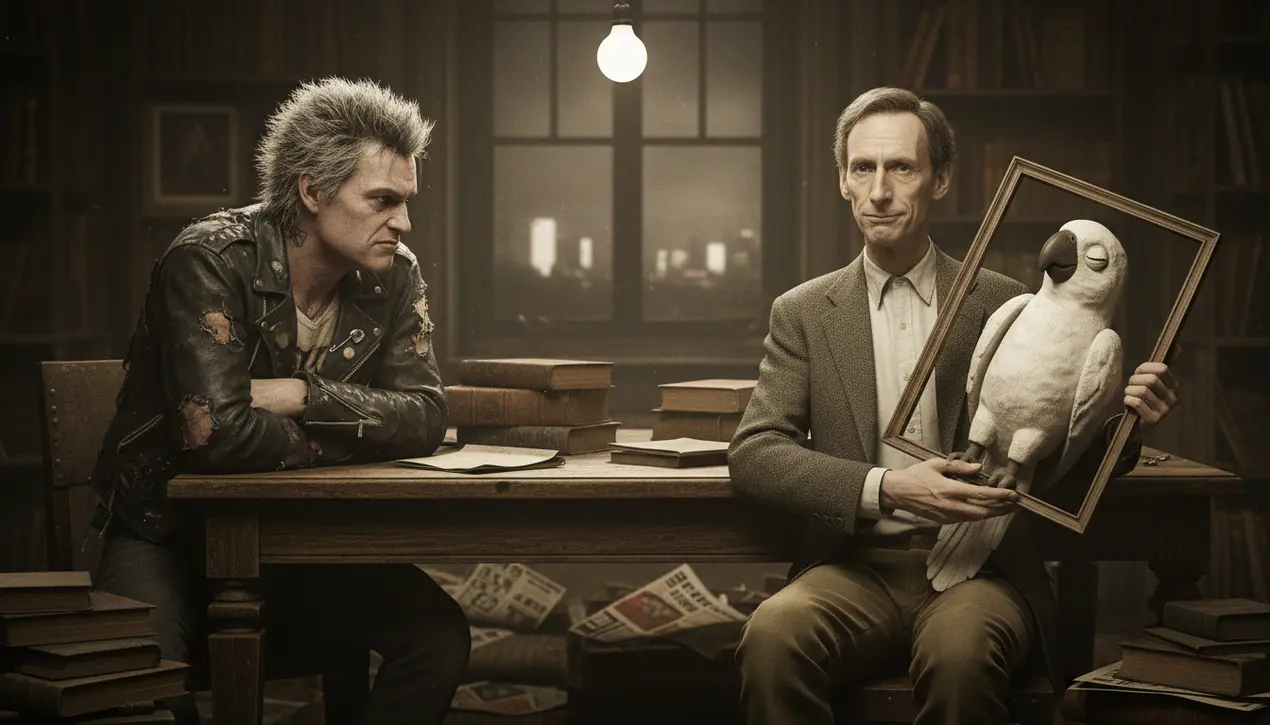
Entertainmentcelebrities
Johnny Rotten Names His Kindred Spirit in Comedy.
BR
Brian Miller
2 hours ago7 min read1 comments
In the grand, cacophonous symphony of popular culture, few voices have cut through the noise with the same serrated edge as John Lydon’s. The former Sex Pistols frontman, forever etched into our collective consciousness as Johnny Rotten, has built a career on a foundation of glorious contempt, a man seemingly at odds with the very celebrity machine he helped to redefine.He’s the patron saint of the perpetually unimpressed, a figure for whom disdain is a default setting. So, when such a person singles out a kindred spirit, it’s not merely a piece of trivia; it’s a cultural event, a rare moment of harmonic convergence in an otherwise dissonant life.The object of Lydon’s unexpected admiration, it turns out, wasn't a fellow punk icon or a renegade artist, but the incomparable comedic force known as John Cleese. This revelation, emerging from the archives of a Mojo magazine interview, feels less like a simple endorsement and more like the perfect, logical punchline to a joke forty years in the making.To understand the profundity of this connection, one must first appreciate the shared DNA of their respective revolts. The Sex Pistols in 1970s Britain were not just a band; they were a Molotov cocktail hurled at the establishment, a four-chord revolution that used noise and nihilism to tear down the rotting facade of post-war British propriety.Similarly, Monty Python’s Flying Circus, with Cleese as its towering, absurdist architect, didn’t just tell jokes; they deconstructed the very language of comedy, attacking the same pillars of class, religion, and bureaucratic nonsense with a surreal and intellectual savagery. Where Rotten used a sneer and a safety pin, Cleese wielded a deadpan delivery and a silly walk.Both were masters of disruption, employing their chosen mediums not for mere entertainment, but as weapons of mass deconstruction. Lydon’s own negative experiences with other celebrities—the dull, the pretentious, the fundamentally unserious—only serve to highlight why Cleese stands apart.Cleese’s comedy, from the petty tyranny of Basil Fawlty to the bureaucratic hellscape of the ‘Dead Parrot’ sketch, is rooted in a profound and articulate frustration with the absurdities of human systems and ego. It’s a frustration that Rotten, the man who sang ‘Anarchy in the U.K. ,’ can undoubtedly feel in his bones.It’s the difference between mere anger and intelligent rage. This isn’t the shallow camaraderie of the red carpet; it’s the recognition of a fellow traveler on the path of principled irreverence.Their kinship speaks to a universal truth often forgotten: that the punk and the satirist are two sides of the same tarnished coin. Both are essential counterweights in a society, the canaries in the coal mine whose respective squawks and squalls warn us of impending cultural asphyxiation.The fact that Lydon, in his later years, can pinpoint Cleese as his spiritual counterpart is a testament to the enduring power of artists who refuse to play the game, who challenge us not to feel comfortable, but to think critically, even if that thinking is accompanied by a snarl or a burst of helpless laughter. In the end, the punk and the Python found their common ground not in genre, but in genius—a shared, unwavering commitment to telling an inconvenient truth, whatever the cost.
#featured
#John Lydon
#Johnny Rotten
#Sex Pistols
#comedian
#kindred spirit
#celebrity relationships
Stay Informed. Act Smarter.
Get weekly highlights, major headlines, and expert insights — then put your knowledge to work in our live prediction markets.
Related News
Comments
Loading comments...
© 2025 Outpoll Service LTD. All rights reserved.